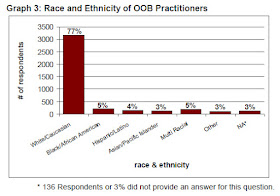We are amidst a revolution. The world at large may not be aware yet, but they will. As prophesied by our dear brother Gil Scott-Heron, this revolution will not be televised, but it is being staged in theaters throughout NYC. Black theater artists all over the city are taking control of their own stories. They are no longer looking to institutions headed by those outside of the community to produce their work. They want their stories told their way, with their artistic sensibilities so that their cultural and social livelihoods might be expressed in a more authentic, relevant way.
I can't tell you when it started. I don't know if there was a specific event or date that sparked this theatrical awakening. I can, however, tell you the exact moment I became aware of it's existence. August 14, 2011 at about 8:11 or 8:12. A group of Black producers, Harlem9, (Spencer Scott Barros, Sandra A. Daley-Sharif, Bryan E. Glover, Garlia Cornelia Jones, Eric Lockley, Jonathan McCroy, Erin Michelle Washington, Erin Cherry, and Deborah Goodwin) put on an evening of new short plays written, directed and acted by some of the best and brightest Black theater artists on the NYC scene.
The event, called 48 Hours in Harlem, was a sold out, standing-room smash. Yet even more important than the evening's monetary success was it's artistic accomplishments. When I went to sleep the Friday before the event, there was nothing. I awoke on Saturday morning with the red light of my phone indicating that there was a new play waiting for me to read, and later that morning, to direct. I believed in our play and the late night efforts of our writer. I also would have trusted my cast with my life, so I was thrilled to share our work with the world that Sunday. Yet, it wasn't until I saw the other plays that I realized that this evening would live well beyond it's two hour running time.
Were you there, dear reader? It hurts me to think that had I not been involved, I too might have missed out on this night that I now know changed the artistic lives of so many young professionals. I wish that I could replay that evening so that you might be able to witness the same brilliance that I witnessed. I wish that I could describe the energy to you in a way that's not trite or simply anecdotal. I wish that I could have bottled up some of the magic in that room so that it might be preserved for future generations of artists. I can't do those things. What I can do, is tell you whose talent touched the stage that night: Ayanna Maia, Dominique Morisseau, Keith Josef Adkins, Derek Lee McPhatter, Mfoniso Udofia, Harrison David Rivers, Tamilia Woodard, Melissa Maxwell, Russell G. Jones, Nicole A. Watson, LA Williams, Bruce Lemon, Laura E. Johnston, Axel Avin Jr., Chanel Carroll, Heather Alicia Simms, Crystal Dickinson, Gillian Glasco, Jamie Lincoln Smith, Jocelyn Bioh, Elain Graham, Samuel T. Gaines, Willie Teacher, Tamela Aldridge, Marcus Naylor, Gerald Joseph, Ayo Cummings, Alano Miller, and Charles Browning.
August 14, 2011. The night I was awakened to the revolution. Since then have noticed that the Black theater community has hung a little tighter. I have made an honest effort to support the work of every artist from that night and feel that they have done the same for me. We are working to stay connected to each other. We have finally moved past politeness and into the kind of open and honest critique that helps us grow as artists and as beings. We have started to recognize the power we possess when we come together. When we take the energy spent trying to be accepted by White institutions and refocus it on ourselves, then we are truly shining a light on the gifts we have been given.
We're not just dreaming bigger. We're dreaming Blacker.
Since that night in Harlem, I have been more aware of other artists that are a part of the movement. I can't list them all. I can't know them all. (Feel free to respond by naming those I have missed.) Nevertheless, these are the writers, directors, actors and organizations that should be on the tip of the theater community's tongue. These names should be spoken, for they are worthy: Bridgit Antoinette Evans, Jesse Cameron Alick, Dennis A. Allen II, Kelley Girod, Germono Toussaint, Camille Darby, Kevin R. Free, Tracey Conyer Lee, J. Holtham, Hazelle Goodman, Bianca LaVerne Jones, chandra thomas, Clinton Lowe, Nedra McClyde, John-Andrew Morrison, Suzanne Darrell, Ione Lloyd, James Halloway, Lisa Strum, Lexi Rhodes, Johnathan Payne, Lynette R. Freeman, Donnetta Lavinia Grays, Erich McMillan-McCall, Shaun Neblett, Stephen Hill, Toccarra Cash, Lori E. Parquet, Freedom Train Productions, The Movement Theatre Company, Under the Spell Productions, Liberation Theatre Company, ActNow Foundation, A Cherry On Top Productions, Take Wing and Soar Productions, and The New Black Fest.
These are the soldiers on the frontline of this revolutionary moment in our theatrical times. Google one. Google them all. Donate to their projects. Most importantly, go see their work. The talent and skill are undeniable, and there is a new sense of empowerment that saturates everything they touch. Each one carries a torch that, united, will set the entire NYC scene ablaze.


